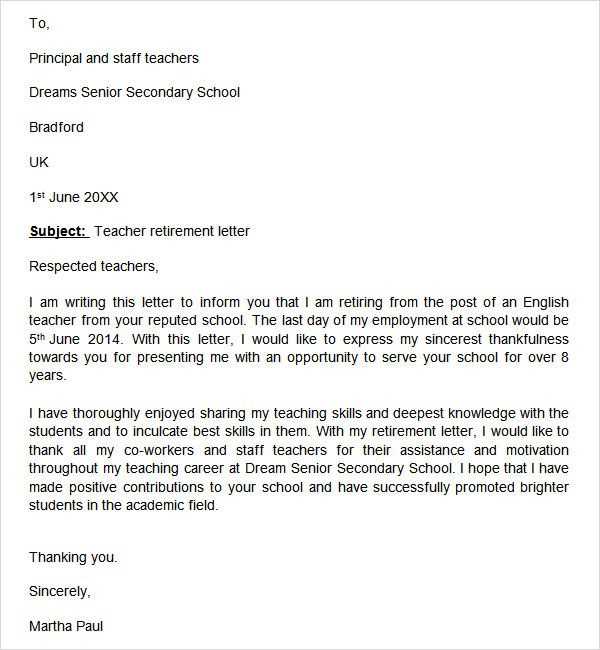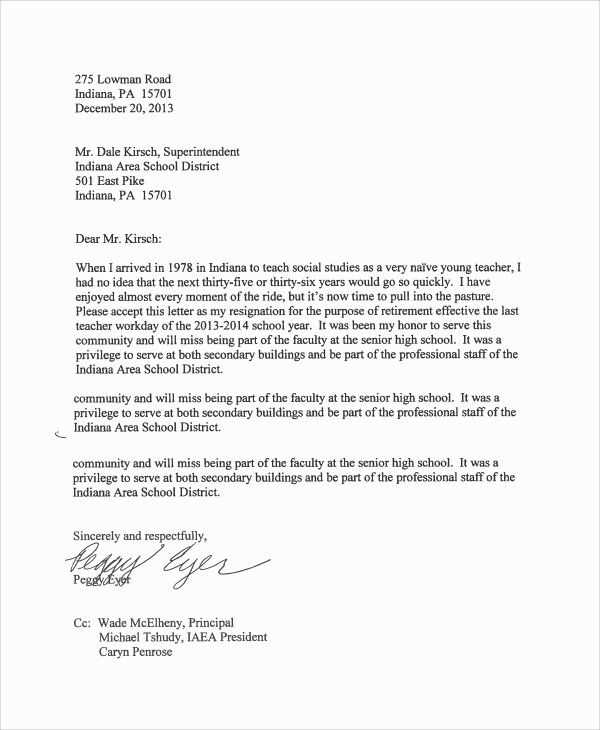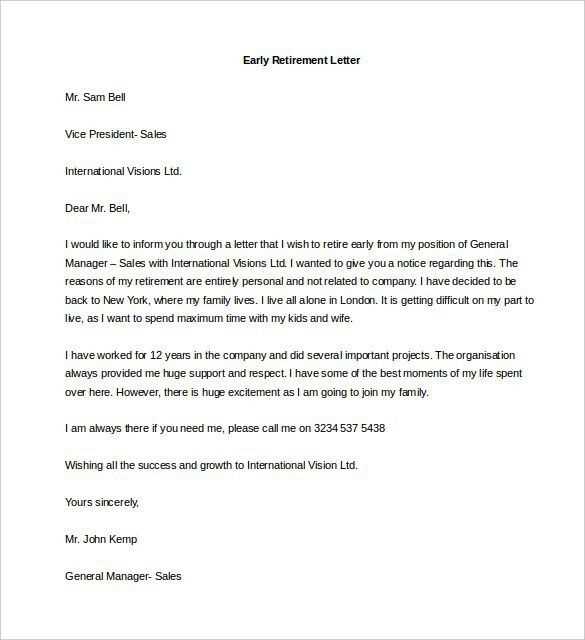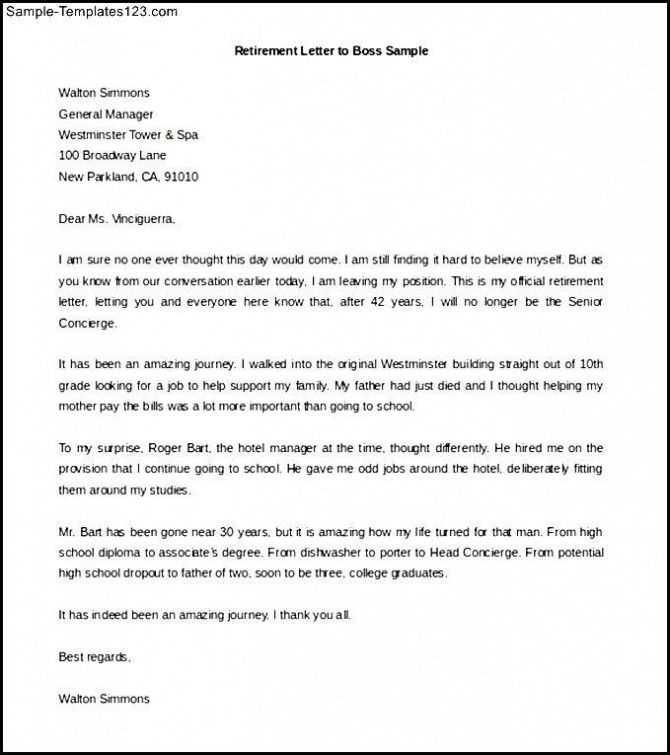Retirement Letter Template for a Smooth Career Transition

When the time comes to move on from a career, it’s essential to communicate your departure in a professional and respectful manner. A well-crafted message can leave a positive lasting impression with colleagues and employers. This section provides helpful guidance for composing a formal farewell communication.
Key Elements to Include
Start with a polite and clear introduction. Express gratitude for the opportunity to work with your colleagues and acknowledge the experience gained. Below are essential aspects to cover:
- Expressing appreciation for the support and opportunities
- Sharing memorable moments or accomplishments
- Offering well wishes for the future of the company
- Providing contact details for future communication
Personalizing the Message

Customize your message based on the relationship with your team or manager. Mention specific contributions or individuals who made an impact on your time there. Tailor the tone to suit the work environment, ensuring it’s warm yet professional.
Common Mistakes to Avoid
While it’s important to keep the tone respectful, avoid being too casual or overly emotional. Refrain from discussing personal grievances or complaints. Keep the content focused on gratitude and positivity.
Examples for Inspiration

If you’re unsure how to begin, here are a few ideas:
- Formal Approach: “I am grateful for the opportunity to have been part of such a dedicated team. My time here has been fulfilling, and I wish the company continued success.”
- Personalized Touch: “I’ll always remember the collaborative spirit of this team and the great moments we shared. It’s been an honor to work alongside such talented individuals.”
Why a Farewell Message Matters

When transitioning out of a position, a thoughtfully composed communication is essential to leave a positive impression. It serves as a professional way to express gratitude, reflect on experiences, and ensure ongoing connections. A carefully crafted farewell ensures that you part on good terms with colleagues and superiors alike.
Key Aspects to Consider
To ensure your message is effective, focus on these key points:
- Express your appreciation for the opportunities you’ve had
- Highlight specific contributions or memorable experiences
- Extend well wishes to colleagues and the company
- Provide your contact information for future communication
Personalizing Your Farewell
Tailor your message based on the people you’re addressing. A message to your team might be more personal, while a note to management may lean more formal. Reflect on the relationships you’ve built, and mention individual achievements or moments that made your time there memorable.
By making your message personal and focused, you ensure it resonates well with your audience, leaving a positive and lasting impression.